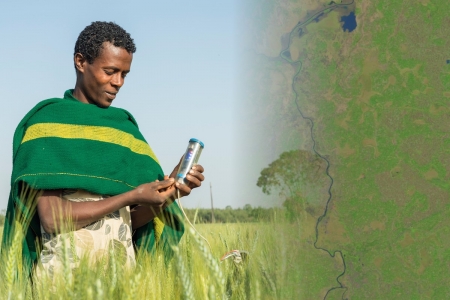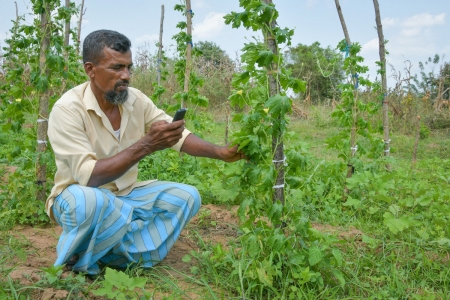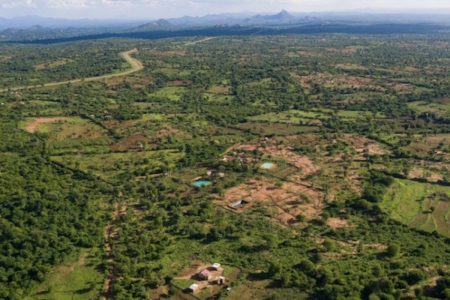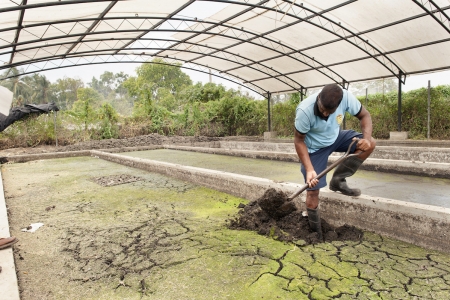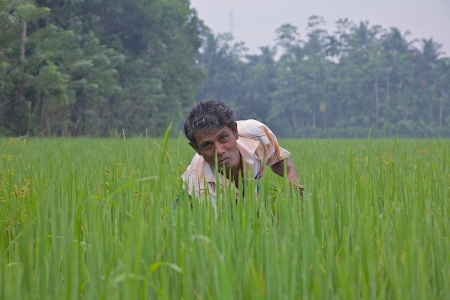Agriculture uses more than 90% of Uzbekistan's water use, and wasteful irrigation practices can be widely seen. Local Water Consumer Associations have a role to play in reversing this trend, but these newly established Associations have difficulty accounting for how much water has been delivered to whom with any precision, and that leads to conflicts that undermine farmers' incentives. Accounting tools have been the missing component in more careful water use.
The CGIAR Research Program on Water, Land and Ecosystems (WLE) and International Water Management Institute (IWMI) have developed and tested some of these tools with Uzbek Water Consumer Associations, and the effects have quickly risen to the national level. The breakthrough technology is a low-cost device called a Smartstick: a sensor that delivers measurements of water level and corresponding discharge volume from the field to a crowd-sourced Association database, in real time.
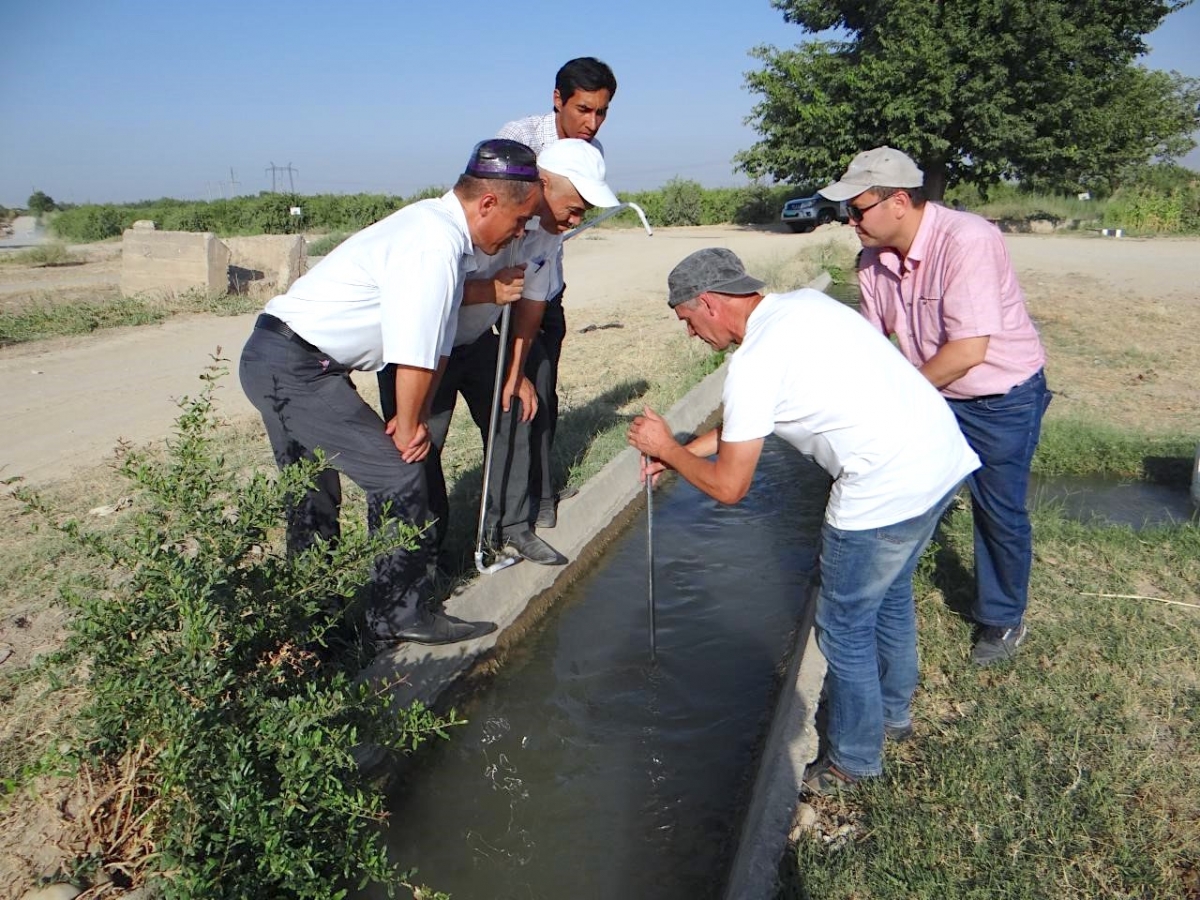
As part of a larger project to support water savings and water productivity improvements at the farm level in Uzbekistan, scientists from WLE/IWMI completed research trials of the Smartsticks used in related mini-gauging stations and demonstrated improvements in water accounting in three Water Consumer Associations that serve some 500 farmers. In all three, the devices enabled precise automated accounting of how much water had been delivered to which farmers, and the information was used to set an irrigation service fee based on exact volumes of water delivered. Accurate, transparent and easy water accounting resolved conflicts related to water distribution and incentivized farmers to use water carefully, as well as to pay irrigation fees in full and on time, securing the schemes' long-term maintenance and operation.
With the evidence in hand, the project team conducted a series of dissemination campaigns, including meeting with policymakers. This rapidly paid off. Dissemination of Smartsticks and mini-gauging stations has been taken up by government ministries as well as the Uzbek media.
Smartsticks and mini-gauging stations are set to become familiar features in the decade ahead, as the government has made the technologies' implementation in irrigation schemes across Uzbekistan a priority in its 2020–2030 National Agricultural Development Strategy and its Roadmap. More than 2,800 mini-gauging stations have been constructed so far, covering an irrigated area of 360,000 hectares in Ferghana Province, and further requests are coming in.

